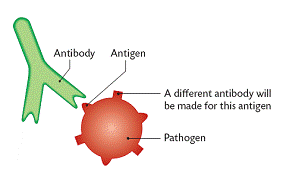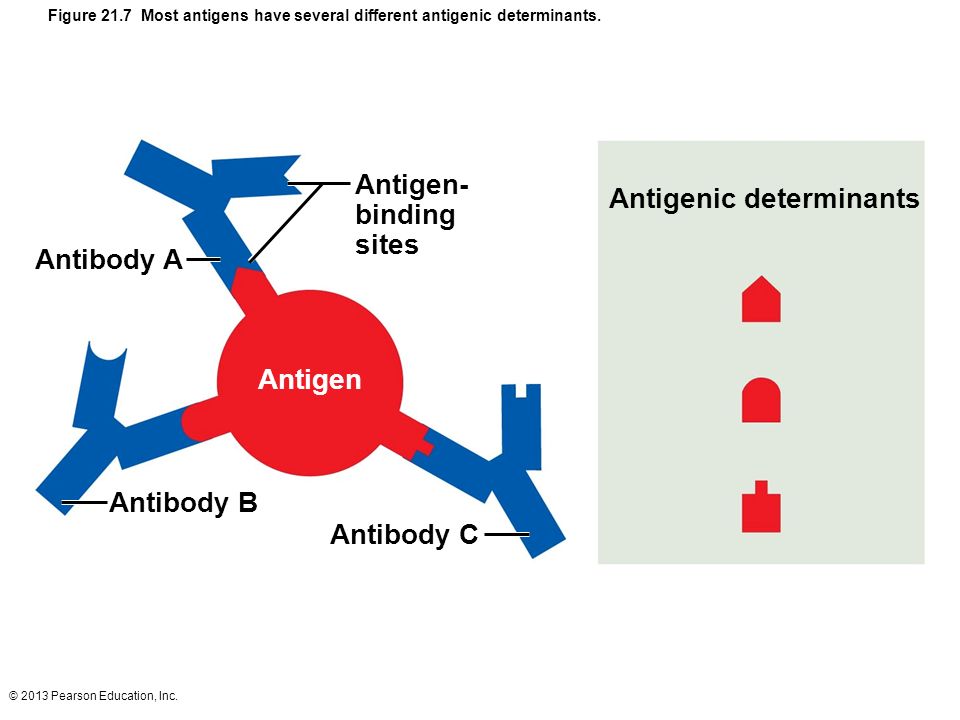What are antigens? How do these differ from antibodies?
1 Answer
Mar 13, 2017
Antigen is capable of generating an immune response and as a result antibodies are produced, which provide immunity against the antigen.
Explanation:
Antigens are molecules alien to an organism's system: when antigen invades the organism, its immune system responds by producing specific proteins called antibodies.
Antibodies are immunoglobulin molecules produced by
special white blood cells, in response to invasion by foreign antigen.
Pathogenic organisms like bacteria and toxins they produce, act as antigens.

( )
)
- Antibodies are always protein, antigens are not
- Antibodies are produced inside the body, antigens are foreign
- Antibodies are Y shaped molecule, structure of antigens could be highly complex with multiple antigenic determinants

( )
)
